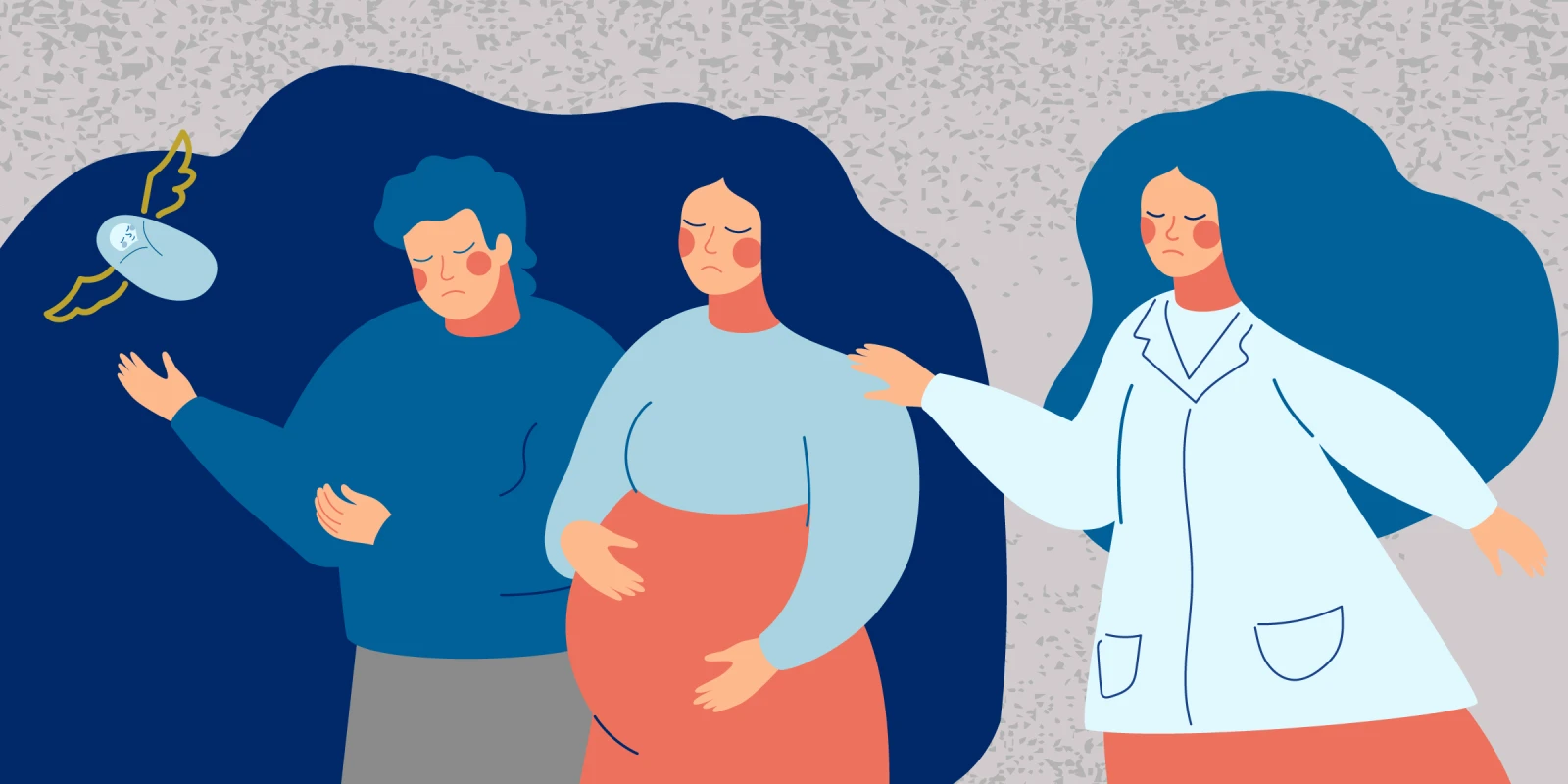It has been a long time since we last talked. From time to time, something jogs my memory and I wonder how you are doing. I remember how full of excitement you were when I first met you. In your first year of marriage and newly pregnant, you were beginning your dream life. At each of your visits for prenatal care, you came prepared with questions for what lay ahead and with concerns for what may or may not be normal. Everything seemed to be going smoothly as you approached the 20-week mark, the point of anticipation at which you could find out your child’s sex.
I remember walking into my office around noon, right as my phone rang. The radiologist was calling to discuss your ultrasound. “Sara, something is definitely not right here,” the radiologist said in a somber voice. “There appear to be multiple amniotic bands all around the baby. This is severe. You are going to need a maternal-fetal specialist.”
My heart sank. In a flash, I saw your dreams for this pregnancy crumble. I collected my thoughts between patient appointments and called you at the end of my work day to ask you and your husband to come in to review the ultrasound. You both looked worried as you sat down, and I carefully described what the radiologist saw on the ultrasound. Having never heard of a complication like this, you were understandably confused and shocked. I answered what I could and promised that the perinatologist would provide more information. Little did I know that that consult would only add more hurt to what was already a painful experience.
When you returned a week later with your husband, there was less sadness in your eyes than anger. You couldn’t even speak. Your husband, ever the soft-spoken man, said he had never wanted to hit someone so much in his life. With tears brimming in his eyes, he retold how the specialist coldly reviewed the ultrasound with you. “He sat on a can like that one,” he said, motioning to the red biohazard trash can in the corner. “And he told us, ‘See all these bands, they are slicing through the baby like a hot knife through butter.’”
Painfully aware that the pregnancy was not going to be viable, you both wept bitterly, the enormity of your pain overwhelming. I struggled to hold back my own tears. I don’t even remember if I was successful or not. We moved delicately forward with the conversation, approaching that elephant in the room — how the pregnancy would end. After the callousness the perinatologist displayed, you didn’t trust him to guide this part of the process. You had come to me for my advice on how to proceed. Carefully, I explained that this was a very personal decision and, ultimately, you were going to lose your child.
Through tears, you shouted, “Well, I’m not going to walk around like this is a normal pregnancy and just wait for you to tell me the baby is dead!” Verbalizing what you indeed would have to do left you unable to continue.
“We have an appointment next week,” your husband said. Then our eyes met, and I understood what you had decided. I didn’t inquire any further, as it was clear you had already considered the excruciating details of each path. Still, I knew the emotional aftermath was one you could not prepare yourself for, regardless of which path you chose.
I reached out for your hand and said I would be here for you no matter what. I wasn’t sure if the expression on your face was relief that I wasn’t angry at you for making such a decision, or grief because I had no better solution to offer than the two before you. Perhaps the grief was my own reflection.
They say that time heals wounds. I tried to walk with you through the healing process, but doctors can’t heal everything. On the contrary, to you, I became an impediment to your healing. I know it wasn’t my fault. You told me as much in a letter you sent me about seven months after it happened. You said you were so thankful for my care and compassion, but you just could not bear the thought of walking down my hallway again. The terror at the prospect of being in the same room where you had received that awful news so many months ago was too much. It would be like ripping the scab off every time, so you had to say goodbye.
It was a double tragedy. You lost your child, and then you lost your doctor. The first was not your choice; the second was, but only in the perverse sense, like a real-life version of the game Would You Rather. The topography of your loss was one I had never charted before. Despite the sorrow, I am thankful to have been a part of your journey. You were a stark reminder of why compassion and communication are such critical pieces of a doctor-patient relationship. Wherever you are, I hope that you have healed. And I especially hope that, if you have tried again, you are holding a triumphant miracle in your arms.
How has a patient's death or other challenging clinical scenarios shaped your perspective on patient care? Share your thoughts in the comment section below.
Sara Bajuyo, MD is a family physician who practices in South Bend, Indiana. She has five children and enjoys creative writing in her very little free time.
Illustration Collage by Jennifer Bogartz / Ponomariova_Maria / gettyimages







